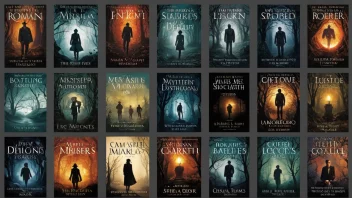Introduction
Quests are a quintessential element of fantasy literature, acting as both a plot device and a means of character development. In this article, you will learn about the significance of quests, how they shape narratives, and the various types of quests prevalent in fantasy stories. By the end, you will have a comprehensive understanding of how to analyze and appreciate quests in your favorite fantasy novels.
Step 1: Understand the Concept of a Quest
A quest typically involves a protagonist embarking on a journey to achieve a specific goal. This goal can range from finding a magical artifact to rescuing a loved one or defeating a dark force. To truly appreciate quests in literature, you must first recognize their basic structure.
Elements of a Quest
- Protagonist: The hero or heroine undertaking the journey.
- Goal: The specific objective the protagonist aims to achieve.
- Challenges: Obstacles that the protagonist must overcome.
- Allies: Supporting characters who aid the protagonist.
- Transformation: The personal growth or change the protagonist undergoes.
Step 2: Identify Different Types of Quests
Quests can take various forms, each serving different narrative purposes. Understanding these types will enhance your reading experience.
Common Types of Quests
- Heroic Quest: A journey to save the world or defeat evil (e.g., The Lord of the Rings).
- Personal Quest: A journey for self-discovery (e.g., The Alchemist).
- Rescue Quest: A mission to save someone (e.g., The Hobbit).
- Exploration Quest: A journey to discover new lands or knowledge (e.g., His Dark Materials).
Step 3: Analyze the Significance of Quests
Quests in fantasy literature often carry deeper meanings. They can symbolize personal growth, the journey of life, or the battle between good and evil. Consider the following aspects when analyzing a quest:
Symbolic Interpretation
- Growth: How does the protagonist grow or change throughout the quest?
- Morality: What moral lessons can be gleaned from the challenges faced?
- Relationships: How do the relationships between characters evolve during the quest?
Step 4: Explore Famous Literary Quests
To understand the significance of quests, it’s essential to delve into some iconic examples in literature. Here are a few notable quests:
Iconic Quests
- The Quest for the Holy Grail: Explored in Arthurian legends, this quest represents purity and the search for divine truth.
- The Journey to Mordor: In The Lord of the Rings, Frodo’s journey symbolizes the burden of responsibility.
- Harry Potter’s Quest: Throughout the series, Harry embarks on quests that reveal his growth and the complexities of friendship and sacrifice.
Step 5: Engage with the Community
Discussing quests with fellow literature enthusiasts can offer new perspectives and insights. Consider joining book clubs or online forums dedicated to fantasy literature. Here are some tips for engaging:
Ways to Connect
- Book Clubs: Join or start a club focused on fantasy literature.
- Online Forums: Participate in discussions on platforms like Reddit or Goodreads.
- Social Media: Follow authors and literary influencers to stay updated on trends and discussions.
Conclusion
Quests are a fundamental aspect of fantasy literature, serving as a vehicle for character development and thematic exploration. By understanding the structure, types, significance, and iconic examples of quests, you can deepen your appreciation for the stories you love. Remember, engaging with others who share your passion can further enhance your literary journey. Happy reading!






